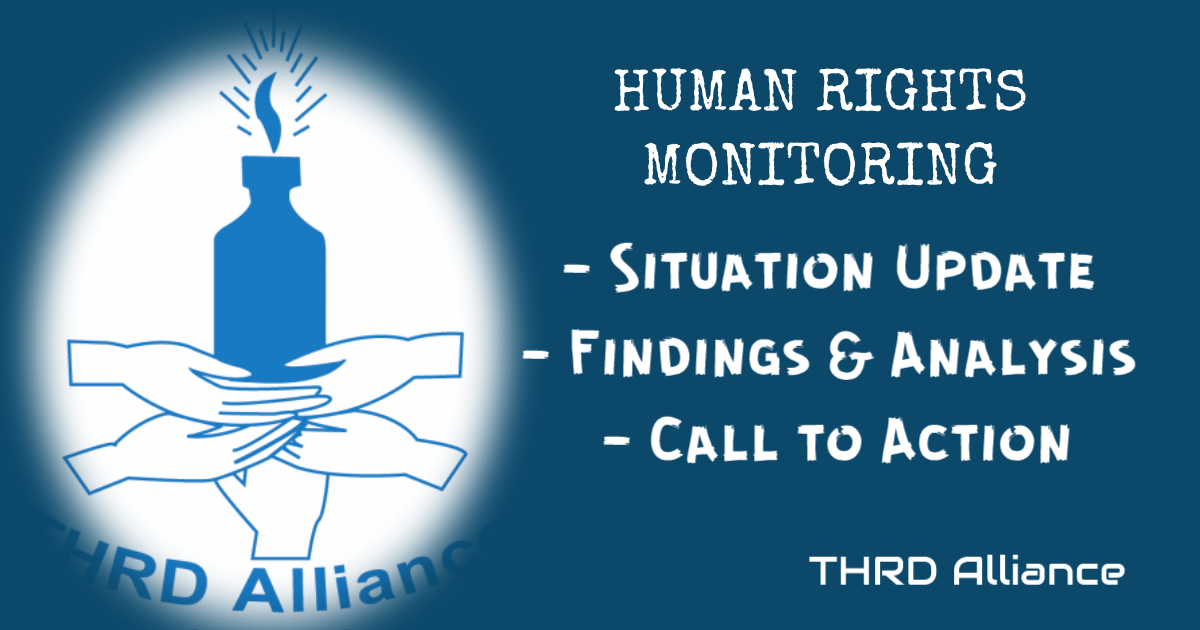The situation of human rights and civic space in Nepal has begun to deteriorate under the incumbent government. Currently, Nepal has the strongest ever government led by Nepal Communist Party (NCP) with two-thirds majority. Although the government has given the slogan of “Prosperous Nepal, Happy Nepali”, its recent moves are aimed at shrinking civic space and silencing the critical mass. Nepal’s civil society, media and human rights organizations are worried of the government’s recent moves.
The following are the bills and policies that the government introduced recently with a motive of curtailing people’s freedom and shrinking civic space.
- Amendment of NHRC Act 2012
The civil society and human rights community have expressed their deep concern over the proposed amendment to National Human Rights Commission (NHRC) Act, 2012 registered by the government in the parliament. They are of the view that the provisions of the bill have limited the jurisdiction, autonomy and independence of the commission. On top of that, the bill contravenes the provisions relating to NHRC as enshrined by the Constitution of Nepal, the Supreme Court’s decision and the United Nations’ Basic Principles for National Human Rights Institutions (NHRIs).
The amendment bill gives the Attorney General discretionary power for the investigation and the implementation of recommendation made by the NHRC ( Section 17a), Government’s interference in financial autonomy of the rights body (Section 18) and the cancelation of provincial and contact offices of the Commission, (Section 26, 2) in particular. This will ultimately lead to failure of human rights protection system in the country.
Hence, human rights community is protesting the NHRC Act, (Amendment) Bill. They are strongly demanding that the provisions of the current bill must be revised in line with the NHRC’s suggestions to maintain it as an independent, autonomous, dignified and effective constitutional body.
- Nepal Media Council Bill and Bill on Mass Communications
Journalists and media community are currently protesting the media council bill another bill registered by the government in the parliament. The bill proposes to impose a fine of one million Nepalese rupees (Approx. 9500 USD) if any media house, publisher, editor or journalist is found publishing news content “tarnishing image of any individuals.” The provisions in the media bill presented by the government contradict the spirit of press freedom as provisioned by the constitution.
Likewise, another similar law drafted by the government – Bill on Mass Communications – has proposed confiscation of media equipment, fines up to Rs. 10 million, and 15 years imprisonment for media persons found publishing contents “undermining national sovereignty and national integrity.” As the bill lacks clear definition of “content undermining national integrity”, the government might use this provision to take action against any media persons they dislike.
Journalists and human rights community perceive these bills as a tool to restrict freedom of expression guaranteed by Article 19 of UDHR and ICCPR.
- Information Technology Bill
Another controversial bill – Information Technology Bill-put forth by the incumbent government has attempted to violate the freedom of speech and opinion under the pretext of regulating the social media platforms.
Earlier, the government also brought another bill – Federal Civil Service Bill– with an attempt to restrict civil servants from sharing their views on social
media or sharing any information and views with media that contradict the government’s policies and action.
- Authority proposed to register, monitor I/NGOs’ activities
The government has proposed a separate authority in a draft law prepared by Nepal Law Commission. Although the draft proposed for one government organization responsible for registering non-government organisations and INGOs with a view to effectively monitor the I/NGOs’ activities in Nepal, many NGO activists are of the view that the authority is likely to deny registration or grant approval to those organizations that could seek projects related to human rights and freedom of expression and association and the projects related to lobby and advocacy for the changes of policies and laws.
Conclusion
In response to the bills recently introduced by the government, civil society, media and human rights organizations are currently protesting the government’s move.
Meanwhile, the main opposition Nepali Congress and the opposition party – the Rastriya Janata Party Nepal have threatened to obstruct the House proceedings to prevent the ruling party from passing the Media Council and NHRC Act (Amendment) Bills.
Hence, we call upon the international community to lobby the government of Nepal to abide by the constitution of Nepal and international obligations.
The government had earlier formulated the “national integrity policy” with a view to control civil society organizations. The government stepped back on this issue after the policy was heavily criticized by national and international organizations, including CIVICUS.




